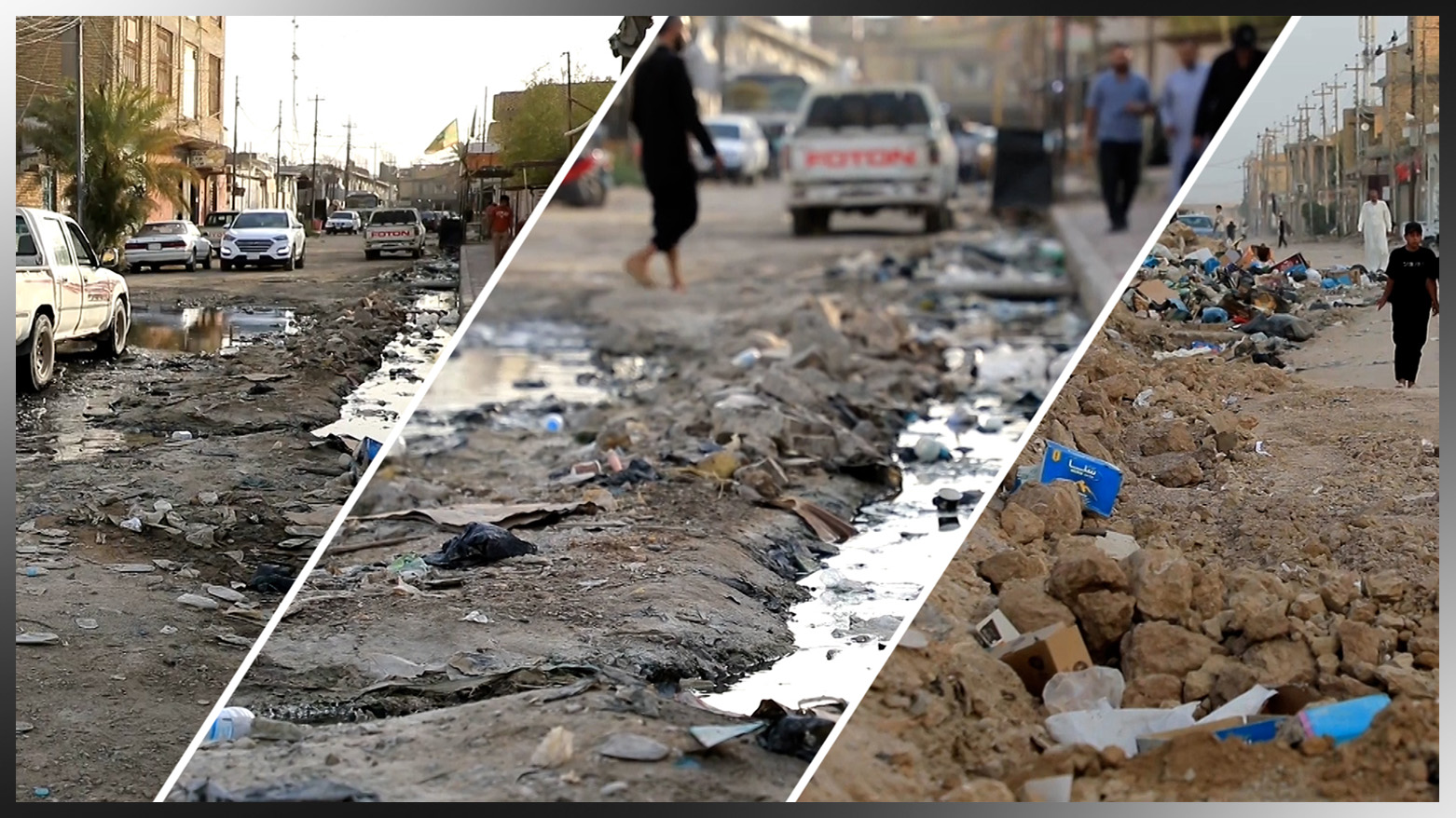Al-Shatrah 'Trapped' by Failed Projects and Neglect
Al-Shatrah, one of Iraq's largest towns, faces a severe service crisis with failed projects, garbage-filled streets, and government neglect. This civic decay compounds a pre-existing environmental disaster from the complete desiccation of its vital Badaa Dam river.

ERBIL (Kurdistan 24) – The Iraqi town of al-Shatrah, one of the country's largest, is reportedly trapped in a downward spiral of failing projects, inadequate electricity, and collapsing public services, leaving its residents to navigate streets filled with garbage and destruction.
Despite the allocation of significant funds for development, citizens and activists describe a state of profound government neglect that has turned daily life into a struggle and pushed the historically significant town toward ruin.
This widespread civic decay compounds an already dire environmental crisis that has gripped the region, where the complete desiccation of the vital Badaa Dam river has already threatened the area’s water security and livelihoods.
Speaking to Kurdistan24, residents voiced their frustration over the deteriorating conditions.
"Al-Shatrah is the largest town in Iraq, and it is not appropriate for this to be its condition. Look at the garbage and destruction in the streets," said Jasim Hashim, a local activist. His sentiment was echoed by another citizen who stated bluntly, "Our services are below zero. Look at that roundabout; it has turned into a garbage dump."
Located north of Nasiriyah in southern Iraq, al-Shatrah is the administrative capital of the al-Shatrah District, a part of the Dhi Qar Governorate. The town, one of the oldest in the province and known for its cultural and archaeological heritage, now faces an uncertain future. Residents lament the loss of the town's former character.
"Al-Shatrah used to be a very beautiful town, known for its beauty, but now it's the exact opposite," one resident said. "Look at that street, how ruined it is. Most of the streets are like this. I don't know why it has fallen so behind."
A significant source of public anger is the perceived failure of contracted infrastructure projects.
Citizens claim that companies tasked with building new streets have left the situation worse than before. "They brought companies to build new streets, but the old streets were better," another citizen added. "The companies come, set up their equipment, and then leave, and no one sees them again."
This pattern of incomplete work has tangible and difficult consequences for the population. "In the summer, we are consumed by dust, and in the winter, the water comes up to our waists," he explained.
The accumulated experiences have left the residents of al-Shatrah feeling a clear sense of neglect from the government, which they say does not pay adequate attention to providing the services that have made their daily lives exceptionally difficult.
The collapse in basic services exacerbates a pre-existing environmental catastrophe previously reported by Kurdistan24.
The Badaa Dam river, a lifeline for al-Shatrah and its surrounding regions for nearly a century, has completely dried up, sparking urgent appeals for government intervention to avert a humanitarian disaster.
The desiccation of this crucial water source has raised profound concerns for the future of water security in the area, directly threatening major water projects that serve the entire governorate.
"We are at the Badaa Dam, and you can see its desiccation with your own eyes," Sair Hadi, a civil activist, told Kurdistan24’s correspondent at the time. "This is an appeal to the Prime Minister, the Minister of Water Resources, relevant authorities, and parliamentarians to save Shatra and its surrounding areas from drying up."
The loss of the river has had a cascading effect, eliminating what was once the only tourist destination for the people of al-Shatrah, who used it for swimming to escape extreme summer heat amidst a lack of electricity.
Environmental experts have warned that the consequences of the river's disappearance could be severe and far-reaching if not addressed.
"The threat of desiccation is a real alarm bell for the lives, health, and livelihoods of our citizens," Mohammed Salim, an expert in environmental affairs, stated previously, noting the detrimental impact on livestock, the environment, and agriculture.
He urged a broader strategy, calling on the government "to pressure neighboring countries for greater water releases and to distribute it equitably among the governorates."
